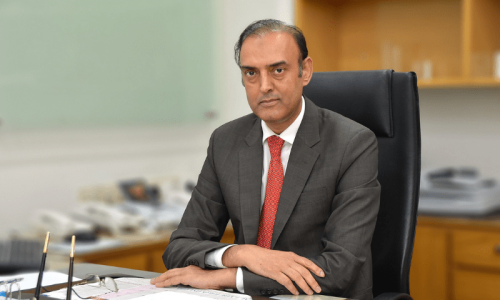ISLAMABAD: As the interest expense on public debt surged by 260 per cent in two years, the gap between tax collection and debt servicing shrank by almost one-third, dropping to Rs1 trillion from Rs2.9tr during the period, statistics shared by the finance ministry with the Senate reveal.
Finance Minister Muhammad Aurangzeb, in a written reply to a question asked by Senator Kamran Murtaza during the question hour, informed the house that the Federal Board of Revenue (FBR) collected Rs6.1tr in taxes as against Rs3.2tr spent on interest payments on debts in 2021-22, reflecting a gap of Rs2.9tr.
He said tax collection increased to Rs7.2tr in 2022-23, but interest expense swelled to Rs5.7tr, and the gap reduced to Rs1.5tr. The statistics show that in 2023-24, tax collection stood at Rs9.3tr, and interest expense surged to Rs8.3tr, translating into a gap of Rs1tr.
The finance minister, however, said it was incorrect to say that the government has spent its entire tax revenue on debt servicing. He said federal tax revenue remained higher than the interest expense.
He also said the government had introduced the issuance of Shariah-compliant instruments through the Pakistan Stock Exchange to increase the investor base other than the banking sector. In this regard, rules have been amended so that individuals and investors other than primary dealers/banks can also participate in the auctions of government securities to reduce dependence on the banking sector.
Tax collection and debt servicing gap narrows to one-third in two years
Answering another question, he said total lending by commercial banks stood at Rs38.535tr as of June 30. The minister said debt on Public Sector Enterprises (PSEs) stood at Rs2.13tr as of June 30 — 5.6pc of the total lending by commercial banks. He said it shows retirement of Rs72.2bn during FY24, a decline of 3.3pc against a 29.6pc increase during the comparable period last year.
He said credit to the private sector stood at Rs8.78tr as of June 30, accounting for 22.8pc of the total lending by commercial banks. Credit to the private sector increased by Rs494bn during FY24, registering 6pc growth compared to 0.2pc growth during last year’s comparable period.
He said the FBR has always strived to enhance the tax base through different initiatives. During tax year 2023, more than 3.5m new taxpayers were registered. Based on the results, ongoing initiatives, and measures taken through policy interventions and operational enforcement, the FBR expects an increase of 4.5m in the number of new taxpayers during the next five years.
He said 146 District Tax Offices (DTOs) have been established with the specific task of registering new taxpayers and ensuring returns are filed from non-filers. Field formations submit monthly performance reports in this regard. In addition, it is continuously monitored through a Dashboard.
Published in Dawn, August 10th, 2024













































Dear visitor, the comments section is undergoing an overhaul and will return soon.